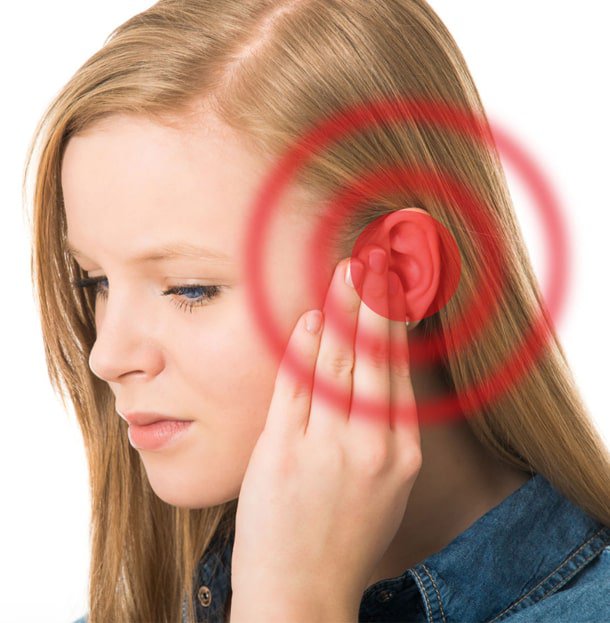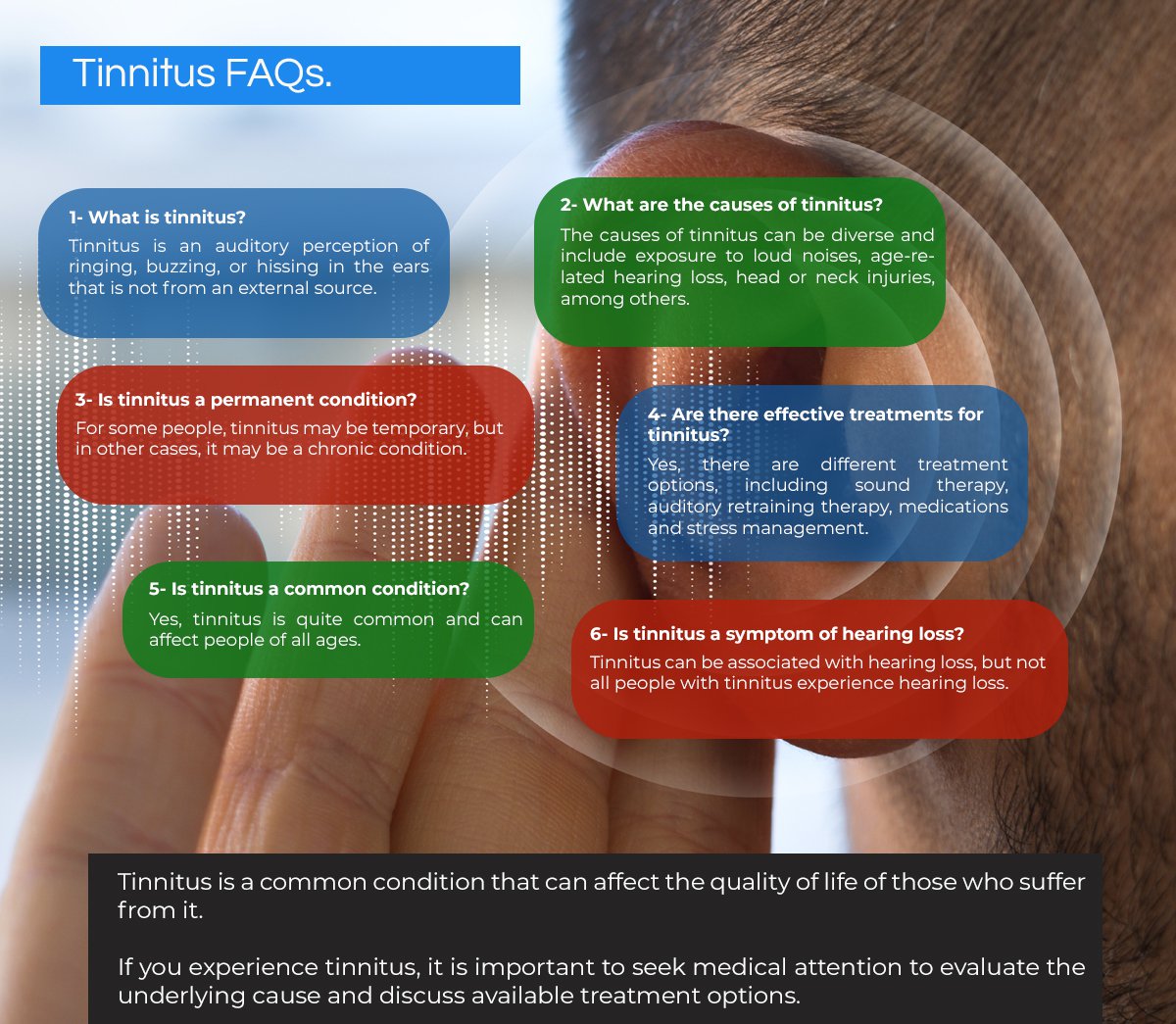Tinnitus, what is it and how is it treated?
Tinnitus is a condition in which a person hears ringing, buzzing, whistling, hissing or other sounds
in the ears that are not present in the external environment.
It affects millions of people worldwide and can be very debilitating, affecting the quality of life
of those who suffer from it.
In this article, we will explore what tinnitus is, its causes and available treatment options.

What is tinnitus?
Tinnitus is described as an abnormal auditory perception in the ear that does not come from an external source.
It is a sensation of sound in the head that only the person experiencing it can hear.
The sounds may vary in pitch and loudness, and may be constant or intermittent. It may affect one or both ears and may be acute or chronic.
Causes of tinnitus
Tinnitus can be caused by a variety of factors, including:
Exposure to loud noises:
Exposure to loud noises, such as loud music or machinery noise, can damage the auditory system and cause tinnitus.
Injury:
A head or neck injury can affect the auditory system and cause tinnitus.
Diseases:
Some diseases, such as Ménière’s disease, otosclerosis, and high blood pressure, can cause tinnitus.
Medications:
Some medications, such as antibiotics and high blood pressure medications, can cause tinnitus as a side effect.
Treatment of tinnitus
Tinnitus cannot be cured, but there are treatment options that can help reduce the severity of symptoms and improve the quality of life for those who suffer from it.
These treatment options include:
Sound therapy:
Sound therapy is a common form of treatment for tinnitus. It is based on the theory that by providing soft, pleasant sounds to the brain, it can divert attention away from the tinnitus and reduce the perception of tinnitus.
Cognitive-behavioral therapy:
Cognitive behavioral therapy (CBT) is a form of therapy that focuses on changing the negative thoughts and behaviors associated with tinnitus. CBT can help reduce the anxiety and depression that often accompany tinnitus.
Medications:
There are some medications that can help reduce the severity of tinnitus, such as antidepressants and muscle relaxants.
Treatment of the underlying cause:
If the tinnitus is caused by an illness or injury, treating the underlying cause can help reduce the severity of symptoms.


Conclusion
Tinnitus can be associated with hearing loss,
but not all people with tinnitus experience hearing loss.
It is always best to consult with specialists in the field, such as Dra. Herlida Gonzalez.
























